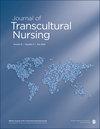幸福恐惧作为一种文化现象对产妇焦虑和自我效能感的影响。
IF 1.2
4区 医学
Q3 NURSING
引用次数: 0
摘要
引言:那些认为体验积极情绪(如幸福)可能导致消极结果的人会抑制他们真实的积极情绪,以防止不希望的后果。本研究的目的是确定作为一种文化现象的幸福恐惧在产褥期妇女中的水平,以及幸福恐惧对这些妇女焦虑和自我效能的影响。方法:本横断面研究于2021年9月至2022年6月在土耳其一家医院的产褥部进行(n = 287)。研究数据采用状态-特质焦虑量表(STAI-I和STAI-II)、一般自我效能量表(GSE)和幸福恐惧量表(FHS)收集。结果:STAI-II与GSE和FHS评分之间存在显著相关,解释了43.4% (R2 = .434)的方差(p < .001)。此外,GSE与从事创收工作、sti - i和sti - ii之间存在显著关系(p = 0.008, p = 0.040, p < 0.001)。研究发现,需要接受产后过程和婴儿护理培训的产妇对幸福的恐惧程度较高(p = .007)。讨论:根据对幸福的恐惧来筛选产妇对于确定她们的心理健康是很重要的。卫生保健专业人员应该意识到,对幸福的恐惧作为一种文化方法会对产妇的焦虑产生负面影响,从而影响自我效能水平。为产妇提供关于为人父母和自我效能的全面培训,以及心理健康支持,对她们应对对幸福的恐惧很重要。本文章由计算机程序翻译,如有差异,请以英文原文为准。
The Effect of Fear of Happiness as a Cultural Phenomenon on Anxiety and Self-Efficacy in the Puerperae.
Introduction: Individuals who believe that experiencing positive emotions such as happiness could lead to negative results can suppress their authentic positive feelings to prevent undesired consequences. The aim of this study was to determine the levels of fear of happiness as a cultural phenomenon among puerperal women and the effects of fear of happiness on anxiety and self-efficacy in these women. Method: This cross-sectional study was conducted in the puerperal service of a hospital in Turkey between September 2021 and June 2022 (n = 287). The study data were collected through State-Trait Anxiety Inventory Scale (STAI-I and STAI-II), General Self-Efficacy (GSE) Scale, and Fear of Happiness Scale (FHS). Results: There was a significant relationship between STAI-II and GSE and FHS scores, which explained 43.4% (R2 = .434) of the variance (p < .001). Also, a significant relationship of GSE with working at an income-generating job, STAI-I, and STAI-II was found (p = .008, p = .040, p < .001, respectively). It was found that the puerperae who stated that they needed training on the postpartum process and baby care had high levels of fear of happiness (p = .007). Discussion: Screening puerperae in terms of fear of happiness is important for determining their psychological well-being. Health care professionals should be aware that fear of happiness as a cultural approach negatively affects anxiety and therefore self-efficacy levels of puerperae. Providing a comprehensive training to the puerperae on parenthood and self-efficacy as well as mental health support is important for them to cope with fear of happiness.
求助全文
通过发布文献求助,成功后即可免费获取论文全文。
去求助
来源期刊
CiteScore
4.60
自引率
4.80%
发文量
80
审稿时长
>12 weeks
期刊介绍:
Journal of Transcultural Nursing (TCN) is a peer-reviewed journal that offers nurses, educators, researchers, and practitioners theoretical approaches and current research findings that have direct implications for the delivery of culturally congruent health care and for the preparation of health care professionals who will provide that care. This journal is a member of the Committee on Publication Ethics (COPE).

 求助内容:
求助内容: 应助结果提醒方式:
应助结果提醒方式:


